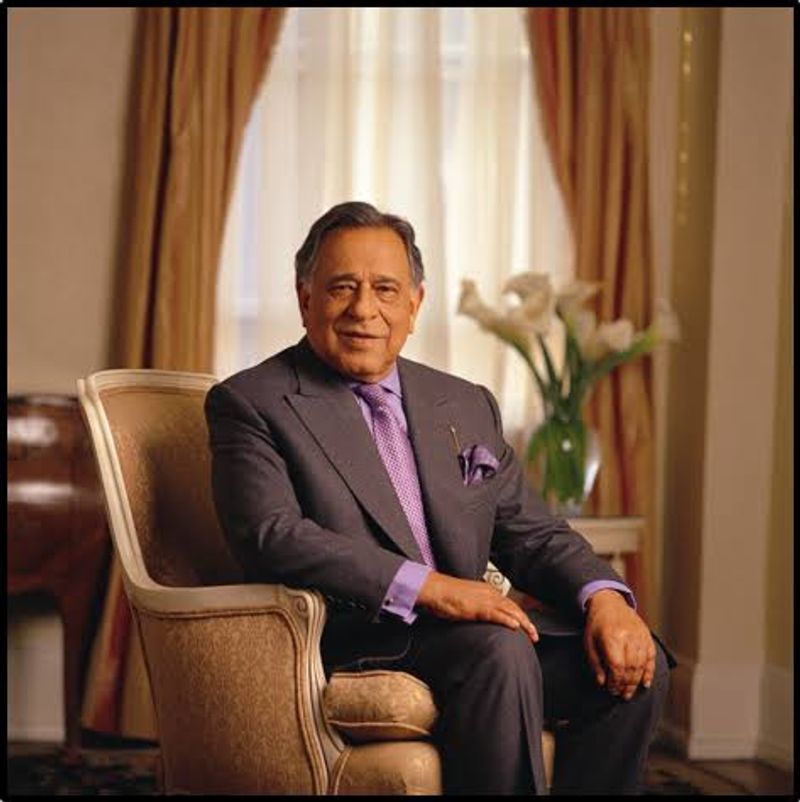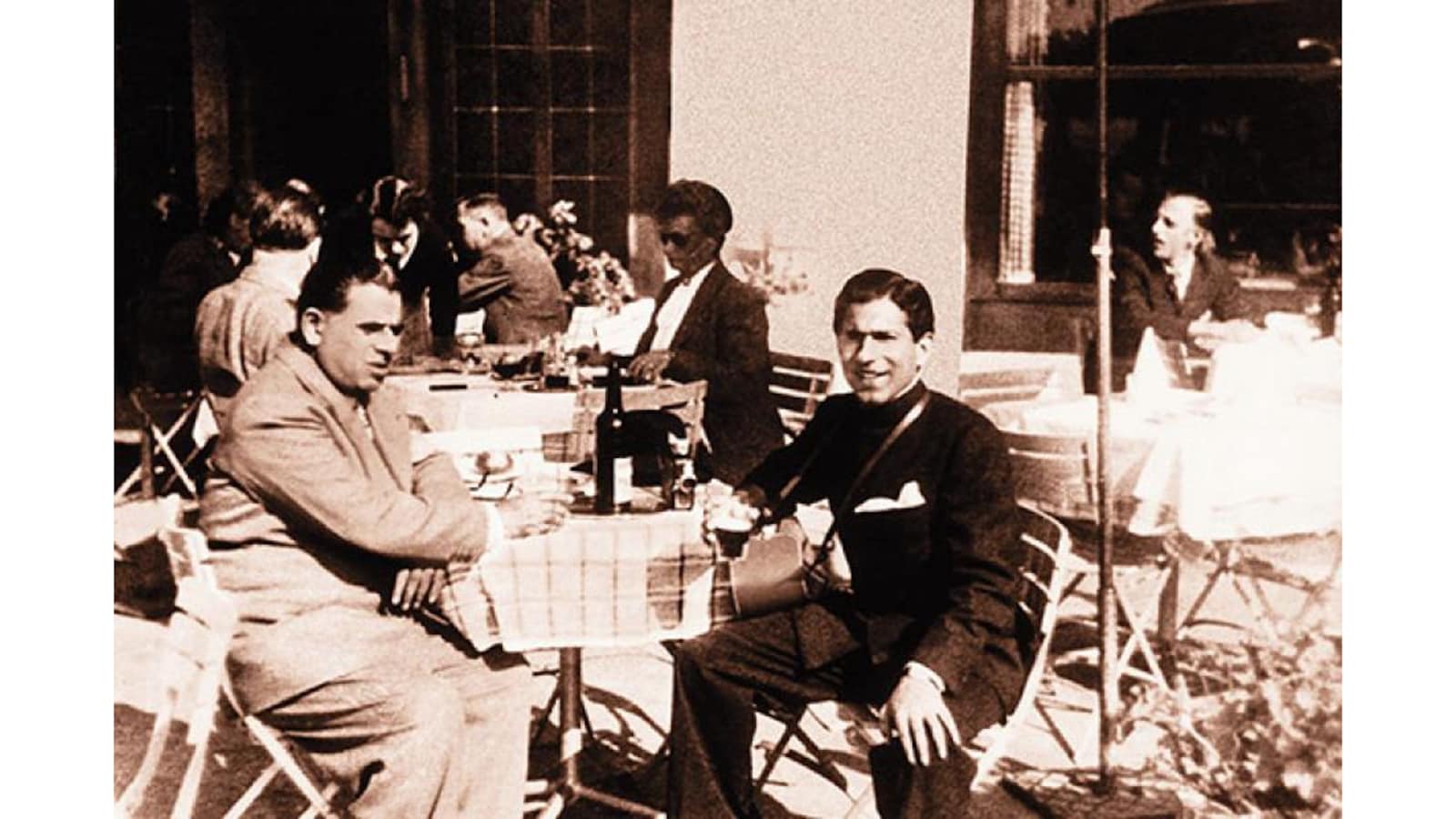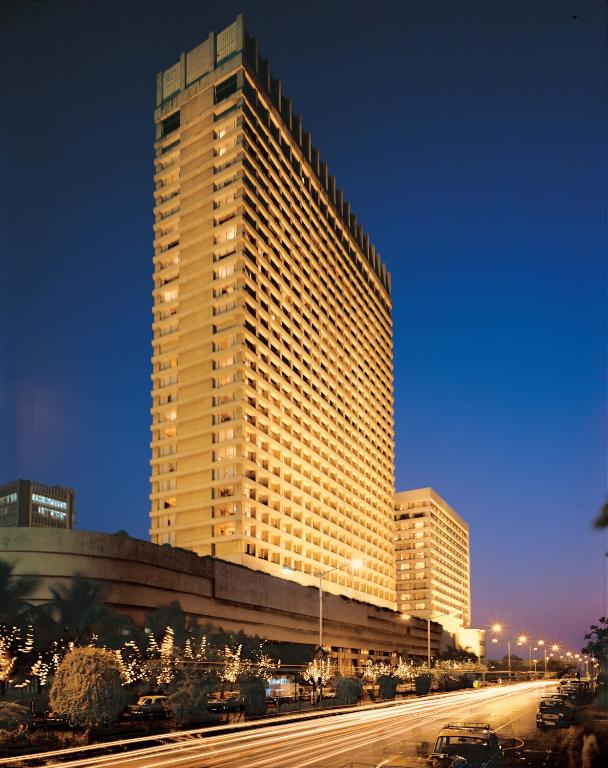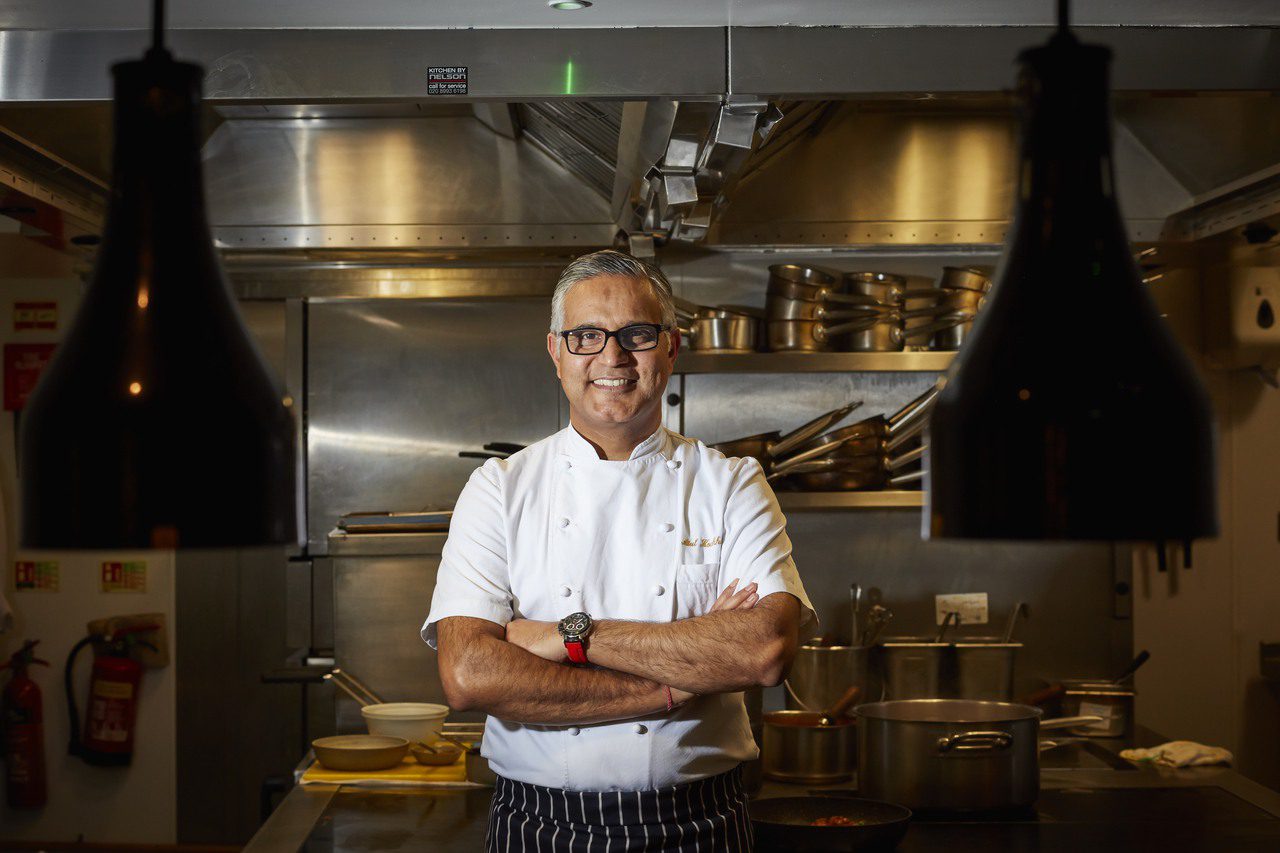(November 18, 2023) In 1984, when India was still in the shackles of socialism, Prithvi Raj Singh ‘Biki’ Oberoi took over the mantle from his father, founding Chairman of the Oberoi Group, Rai Bahadur Mohan Singh Oberoi. The debonair man had a marked taste for the finer things in life, from his Frank Lloyd Wright-inspired Delhi farmhouse, and Husain paintings, to Cuban cigars and thoroughbreds. He brought this discernment to his work: On one occasion, he ordered that all the tiles of the swimming pool at Vanyavilas, Ranthambore, be ripped out because “as a whole, they didn’t create the right shade of blue.”
Legacy of Excellence
Money was of no object, it was just a means to an end as he strove to create perfection, down to the last detail, at every Oberoi property. A GM who oversaw the restoration at Shimla’s The Cecil, the Oberoi’s first ever acquisition, recalled, “A budget is not your concern. Your job is to create a guest experience beyond compare.” It meant employees were always on their toes, but the result was an unparalleled experience in luxury. Biki Oberoi passed away on Tuesday at the age of 94, an icon of the hospitality industry.

Prithvi Raj Singh ‘Biki’ Oberoi
“I have known him for two-and-a-half decades… when I was working as tourism secretary in the Government of Kerala… He was a perfectionist,” Amitabh Kant told the Indian Express. “By starting the Vilas chain – Amarvilas in Agra and Udaivilas in Udaipur – he created the best resort chain in India. He raised the profile of the Indian travel and hospitality sector.” The Vilas brand was Biki’s biggest addition to the Oberoi group. “We give fantasy bathrooms, often with their own walled gardens,” he had said. They took a year just to get the toiletries right. “There should be an eroticism to a resort suite; as soon as you enter, your mind should start dreaming about what you’re going to do where.”
His father, MS Oberoi, had also been a perfectionist. He had created a stack of manuals to ensure that consistency went with perfection. Biki Oberoi, however, was steering the family empire in a very different world from the one his father had known. Not long after he took over, India’s socialist legacy came to an end. Suddenly, competition mushroomed, international chains arrived in India, the business he had known all his life was “not the two-horse race of Rai Bahadur’s early days,” Biki Oberoi said in an interview.
“Hotels are like showbiz; you have to come up with a new act everytime,” he once remarked. And he did, with aplomb. Biki Oberoi decided his hotels would never give into the more gaudy forms of luxury, choosing instead smaller hotels with a quiet elegance that would appeal to customers with refined tastes. No guest would ever see “a hundred people jostling in the pool,” no baaraats “with boisterous dancing and grooms on ghoda.” It meant he would knock off a big chunk of customers, but that was a price he was willing to pay. In Fort Prithviraj, just outside Jaipur, he created his private residence, with an “English drawing room, his favoured rosewood toilet seats, and liveried retinue serving gourmet canapes at the swimming pool,” Bachi Karkaria writes in the Times of India.
Rai Bahadur Mohan Singh Oberoi began his career as a clerk at Shimla’s Cecil Hotel – he had moved to Himachal Pradesh in 1922 with no money to his name. He quickly realised he had great flair for running a hotel and worked his way up the ladder, eventually buying the hotel, which is now The Oberoi Cecil. Four years later, he acquired Grand Hotel, now The Oberoi Grand, in Calcutta. In 1943, a decade after he began his career, be took over the Associated Hotels of India, the parent company of the Cecil Hotel. Meanwhile, as Oberoi senior was buying his first hotel, Biki Oberoi, who was 10, was admitted to St Paul’s School in Darjeeling.
“I finished school in 1946,” Biki Oberoi told Forbes. “Two years later, I went to London to study chartered accountancy as my father and I agreed that knowledge in finance would help me in business. But I was bored within a year.” He decided to travel to France and Switzerland instead, and learn his trade by working in the industry. He learned a lot but Biki Oberoi was a savant from the start. “Till 1973, we had spent all our lives in hotels. I had grown up in hotels. I understood hotels well.”

Rai Bahadur Singh Oberoi and his son Prithvi Raj Singh Oberoi
So, after a respectable amount of time spent learning the trade, Biki Oberoi returned to join the business, along with his father and his older brother, Tilak ‘Tikki’ Raj Singh Oberoi. He was refined, sophisticated and well-travelled, he knew luxury because he had grown up in it. His father, however, brought him down to earth. “Biki, remember what I am going to say,” he told him. “There are many people who are smarter than you, many people who are better-looking than you and many, many more people who are richer than you. So, be humble.”
His first assignment was the Grand Hotel in Calcutta, as well as four hotels in Pakistan that had been acquired by AHI (in 1965, after the war, the Pakistan government took over the hotels). The family did actually feel the pinch but their business was growing so fast that they made up for the loss. Biki and his brother, Tilk ‘Tikki’ Raj Singh Oberoi transitioned into larger hotels and opened India’s first ‘modern hotel’ in New Delhi, swimming pools, several restaurants and 320 rooms. Associated Hotels of India became merged with East India Hotels Ltd and became EIH Ltd – this group included The Oberoi Grand in Calcutta, Maidens Hotels in New Delhi and The Oberoi Ceil. In 1973 came the Trident in Mumbai, as well its sister concern, The Oberoi.
In 1984, however, Tikki died, leaving Biki to run the show on his own. The new scion decided to pivot and expanded the business model to other ventures, including the operation of all the snack bars and restaurants at the Mumbai Airport. The Vilas brand came in 1998, with The Oberoi Rajvilas in Jaipur. That was the start of Biki’s journey to putting The Oberoi on the world map, making it synonymous with Indian luxury globally.
In 2008, the Oberoi-Trident was one of the properties under attack on November 26, and the interiors were completely destroyed. Biki always had a close connection to Mumbai and was so distraught that he personally oversaw the extensive restoration, which took eighteen months to complete. That was also the year he was awarded the Padma Vibhushan and been conferred with the Lifetime Achievement Award a the Ernst & Young Entrepreneur of the Year awards, for redefining design standards in luxury hotels.

The Oberoi-Trident
Biki’s own home was the private farmhouse on the outskirts of Delhi and later on, one more in Nandi Hills, on the outskirts of Bangalore. He would travel to the city regularly from Delhi, on his private jet, and brave the commute to The Oberoi hotel in the city centre to hold meetings, usually with a cigar in one hand and a glass of wine in the other.
His love for cigars, combined with his relentless perfectionism did eventually take their toll. In 2022, after remaining at the helm of EIH Associated Hotels for nearly three decades, Biki Oberoi stepped down as Chairman and Director, due to his deteriorating health. The mantle now rests with his son, Vikramjit and his nephew (Tilak’s son), Arjun, who is the Executive Chairman of the group. PRS ‘Biki’ Oberoi’s will be big shoes to fill – as Anand Mahindra put it, “He was a class act.”




